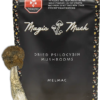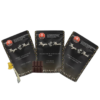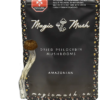Have you ever had moments when you felt like you were living two different lives?
The person you are in public—calm, composed, and friendly—seems like a completely different person from the one you encounter in private moments, perhaps frustrated, restless, or even unsure of yourself.
Maybe you’ve caught yourself questioning who you truly are, wondering whether the person you present to the world is the same as the person you really feel inside.
This tug-of-war between different versions of yourself is something many people experience, and it can leave you feeling confused, disoriented, or even disconnected.
The concept of identity is far more complex than we might think, and often, it takes a deeper understanding to untangle the various layers of who we are.
I know I’ve felt that inner conflict at times. For instance, during a phase in my life, I struggled with the way my professional identity seemed to clash with my personal life.
At work, I was the ideal employee—calm, composed, and agreeable, someone who could handle any situation with ease. But at home, I would often find myself overwhelmed, irritable, or exhausted—feeling like an entirely different person.
It wasn’t until I encountered Carl Jung’s ideas about the psyche that things began to click. Jung’s model, which breaks down the human psyche into four key components—the ego, the persona, the shadow, and the self—helped me realize that these different aspects of my identity weren’t contradictory.
Rather, they were all parts of a much bigger, more complex whole. In fact, understanding Jung’s theory gave me the tools to confront the parts of myself that I had been avoiding, and in doing so, I started moving toward a more integrated, authentic version of who I am.
Carl Jung’s model of the psyche offers a fascinating and deeply insightful approach to understanding the human experience. He proposed that the mind is not a simple, linear thing, but a rich, multifaceted system made up of different elements that shape who we are.
Jung’s model, though complex, can be incredibly useful in answering the age-old question: “Who am I?” By examining the four primary components—ego, persona, shadow, and self—we gain insight into the roles they play in how we see ourselves and how others see us.
In this article, we’ll explore each of these components in depth, explaining their significance and how they work together (or sometimes against each other) to form our identity.
Through this exploration, we’ll also discover how you can use Jung’s ideas to move toward greater self-awareness and growth.
As you read on, think about your own experiences. Have you ever noticed different “versions” of yourself emerging depending on where you are or who you’re with?
Have you ever caught yourself acting in ways that didn’t feel true to who you really are? Understanding the ego, the persona, the shadow, and the self offers the opportunity to begin integrating these different parts of yourself and moving toward a more whole, authentic version of yourself.
By the end of this article, you might just have some new tools and perspectives to help you better understand the forces that shape your behavior—and ultimately, help you align your actions with the person you truly are inside.
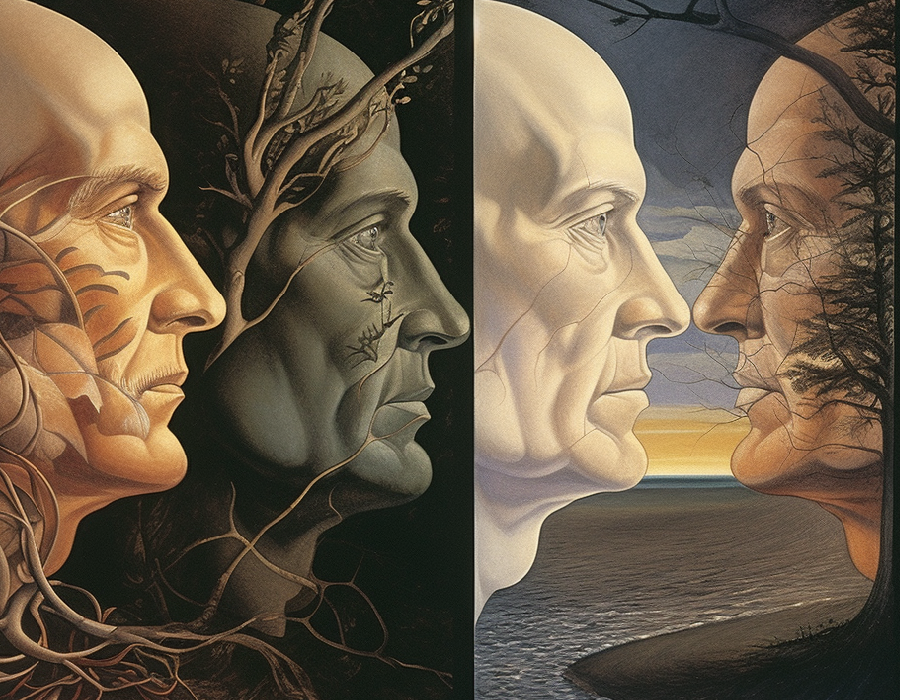
Deep Dive: Jung’s Model of the Psyche
Carl Jung’s exploration of the psyche offers profound insights into the complexities of human identity. According to Jung, we are not just a single, static self, but an evolving, multifaceted being.
The psyche consists of four key elements: the ego, the persona, the shadow, and the self.
Each of these parts plays a significant role in shaping our identity and behavior. By understanding and integrating these aspects, we can navigate the intricacies of the mind and move toward greater psychological wholeness.
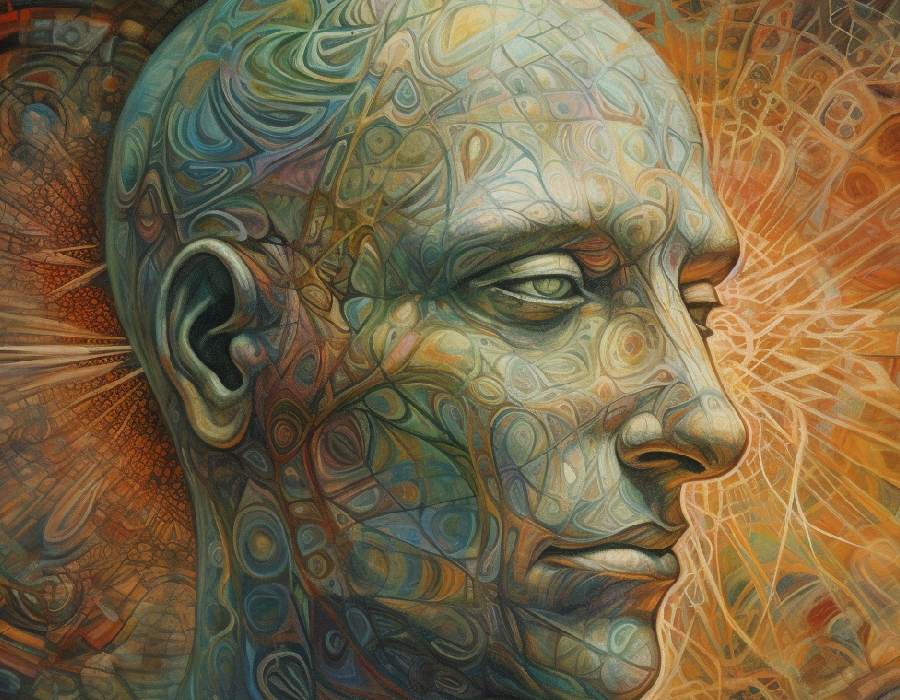
The Ego: The Conscious “I”
The ego, for Jung, is the center of our conscious awareness. It is the “I” that makes decisions, forms opinions, and navigates daily life. It is shaped by a variety of factors, including personal experiences, upbringing, cultural conditioning, and the demands of society.
This conscious self is necessary for functioning in the world—it allows us to interact with others, perform tasks, and make sense of our lives.
However, the ego can become overly attached to its own image, leading to a limited sense of who we are. It can become trapped in the superficiality of social roles, over-identifying with the persona, or even developing rigid patterns of thought and behavior that hinder personal growth.
In essence, the ego is vital for day-to-day life, but it is not the complete picture of who we truly are. The ego operates within the confines of our conscious mind, but it’s just one piece of the puzzle.
When we over-identify with the ego, we risk losing touch with the deeper, unconscious layers of ourselves—those parts of the psyche that hold the potential for true self-discovery.
The Persona: The Mask We Wear
Jung’s concept of the persona refers to the outward-facing mask we wear in society. It is the role we play in various contexts—whether at work, with friends, or in family settings.
The persona allows us to adapt to the expectations and norms of the world around us. It provides a way for us to function socially and emotionally, allowing us to connect with others in ways that are appropriate for each situation.
While the persona is necessary for navigating social life, it can also become a source of disconnect. If we become too attached to our persona—if we allow it to define us—it can obscure the deeper parts of who we are.
The persona can become rigid, a carefully constructed mask that hides the complexity of the self beneath it. This detachment from our true feelings, desires, and vulnerabilities can result in a sense of inauthenticity, where we feel as though we are playing a role rather than living our truth.
An overly constructed persona can prevent us from experiencing genuine emotional connections, leading to feelings of isolation or alienation.
Jung’s insight here is clear: the persona is necessary, but it should not be mistaken for the entirety of our identity. It’s just one layer, and when we identify too strongly with it, we risk losing touch with our authentic self.

The Self: The Ultimate Integration
For Jung, the self represents the totality of the psyche—the union of all aspects of the ego, shadow, persona, and unconscious.
It is the true essence of who we are, and it is only realized through the process of individuation. Individuation is Jung’s term for the journey of integrating all parts of the psyche into a harmonious whole.
It is not about becoming perfect or flawless, but about accepting and embracing all aspects of ourselves—both light and dark.
The self, in Jungian terms, is not a fixed entity but an evolving process. As we grow and evolve through life, we continue to integrate new aspects of ourselves, expanding our consciousness and gaining a deeper understanding of who we truly are.
The self is the goal of individuation—a state of wholeness that emerges when we fully accept ourselves, both the good and the bad, and embrace the complexity of our inner worlds.
Achieving the self requires us to confront and integrate the unconscious aspects of the psyche, including the shadow. It involves balancing the demands of the ego, persona, and unconscious, and ultimately realizing that these elements are not separate parts of ourselves but integral components of a unified whole.

Key Takeaways
Jung’s model of the psyche offers a powerful framework for understanding the complexity of human identity. The ego is our conscious identity, but it is limited in scope and can become over-identified with the persona.
The persona is the social mask we wear, necessary for navigating social life but potentially inauthentic when overly rigid. The shadow contains the hidden aspects of ourselves—those qualities we suppress or deny—and confronting the shadow is key to self-awareness and growth.
The self is the ultimate goal, the union of all aspects of the psyche, realized through individuation and self-acceptance.
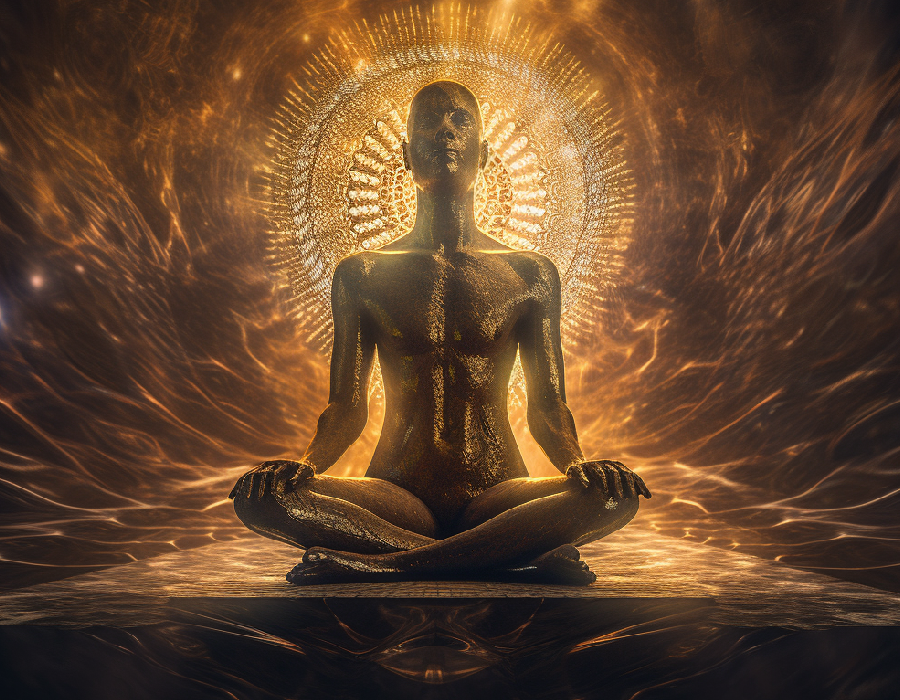
Uncover Your True Self Today with Magic Mush
Carl Jung’s model of the psyche offers a profound way to understand our inner worlds, breaking down the complexities of identity into four essential components—the ego, the persona, the shadow, and the self.
Each of these elements plays a crucial role in shaping our lives and decisions, from how we present ourselves to the world to the hidden aspects of our personalities that we suppress or deny.
By exploring these facets of our psyche, we move toward greater self-awareness and personal growth. Jung’s theory invites us to confront and integrate the fragmented parts of ourselves—light and dark—into a harmonious whole.
Through this process of individuation, we can begin to experience deeper authenticity, connection, and inner peace.
In embracing Jung’s teachings, we understand that the path to self-actualization is not about rejecting certain parts of ourselves, but about accepting them.
The journey through the ego, the persona, the shadow, and the self is about peeling back the layers that obscure who we truly are. This journey is not easy, but it is undeniably rewarding.
As we recognize the importance of balancing these four components, we come closer to realizing the fuller expression of our identity, leading to a more integrated and fulfilled life.
At Magic Mush, we believe in the transformative power of self-exploration, and we are here to support you on that journey. As your trusted partner in the United States magic mushroom industry, we offer premium products and resources to guide you through your psychedelic experiences.
With our expert knowledge, rigorous product testing, and commitment to safety, we are dedicated to helping you explore the therapeutic potential of magic mushrooms.
Whether you’re seeking personal growth, healing, or a deeper connection with yourself, Magic Mush provides a safe, supportive environment to discover the profound benefits of psychedelics.
We’re not just about offering high-quality products; we are here to foster a community that challenges misconceptions and promotes safe, responsible usage.
Our team at Magic Mush is passionate about educating our customers and destigmatizing the use of magic mushrooms in California.
With seamless online shopping, private consultations, and exceptional customer support, we make it easier than ever for you to access the transformative power of psychedelics.
So, why wait? Explore our shop today, and let us be your guide as you take the next step on your journey toward self-discovery.
Join the Magic Mush community now, and start experiencing the benefits of magic mushrooms today.
